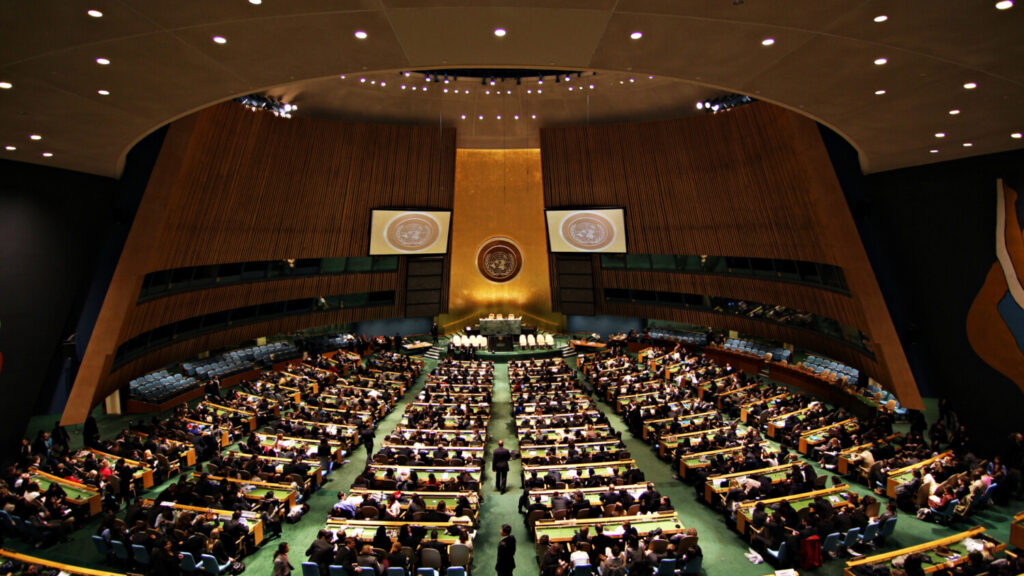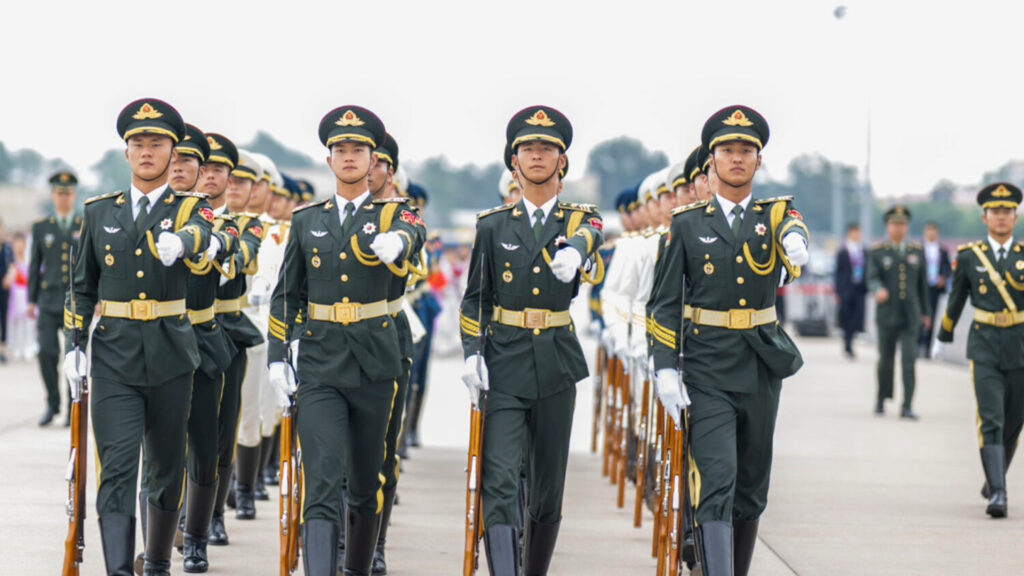Russia–Azerbaijan Tensions: How the Caucasus Power Balance is Changing
Russia and Azerbaijan’s relationship has long been a cautious balancing act that has been rooted in shared imperial legacies as well as Soviet legacy, but increasingly defined by competing interests. Following the dissolution of the USSR, Moscow pursued the preservation of its regional influence in the South Caucasus by fostering bilateral relations, engaging in arms transfers, promoting energy cooperation and leveraging integrative frameworks such as the Commonwealth of Independent States (CIS). Azerbaijan, meanwhile, played its own strategic angle. Navigating ties with Moscow while concurrently deepening partnerships with Western actors and, increasingly, with Turkey.
The aftermath of the Second Nagorno-Karabakh War in 2020 marked a pivotal shift in Azerbaijan’s regional standing (Davis Center for Russian and Eurasian Studies, 2024). Although Russia facilitated the ceasefire agreement and deployed peacekeeping forces, Azerbaijan’s dependency on Russian mediation significantly waned. Furthermore, the rise of Turkish influence, coupled with Azerbaijan’s increasing importance as a non-Russian energy supplier to Europe, has since reshaped its strategic posture, often putting it at odds with Moscow.
This article explores how recent events — from violent raids in Yekaterinburg to the arrest of Russian state media staff in Baku — have pushed the relationship to its lowest point in decades, reshaping the power balance in the Caucasus.
The Yekaterinburg raids and Azerbaijan’s Sputnik Arrests
Russia–Azerbaijan relations have experienced a marked deterioration since the tragic crash of Azerbaijan Airlines Flight 8243 in December 2024 (The Jamestown Foundation, 2025) and subsequent developments have further exacerbated diplomatic tensions. On June 27th, Russian security forces conducted coordinated raids on several businesses reportedly owned by Azerbaijani nationals in Yekaterinburg, one of Russia’s largest urban centres. The operation resulted in the extrajudicial killing of two brothers, Ziyaddin and Huseyn Safarov, injuries to several other individuals, and the detention of nine persons (The Jamestown Foundation, 2025).
In response, Azerbaijan’s Ministry of Foreign Affairs formally summoned the Russian ambassador to provide clarification regarding the incident (TRT Global, 2025). Meanwhile public discourse in Baku has been highly critical of Moscow, with local media frequently invoking the episode as further evidence of what they characterize as “Moscow’s imperialist chauvinism” (OC Media, 2025).
Soon after, Azerbaijani authorities escalated the standoff by detaining Sputnik Azerbaijan staff in Baku, accusing them of acting as foreign agents and spreading Kremlin propaganda (Lansing Institute, 2025). Authorities detained seven individuals associated with Sputnik, including its editor-in-chief, Yevgeny Belousov, and Igor Kartavykh, who were placed in pre-trial detention for at least four months on charges including fraud, illegal entrepreneurship, and money laundering (AP News, 2025). The operation included images of the detained individuals in handcuffs, some visibly bruised, broadcast on Azerbaijani media, suggesting a deliberate public spectacle and a strong political message to Moscow that Russian state media would not be tolerated in Azerbaijan’s domestic space.
This development has been widely interpreted as a retaliatory measure in response to the Yekaterinburg raids, symbolising a broader assertion of Azerbaijani sovereignty in matters of information control and national security (Radio Free Europe/Radio Liberty, 2025). The arrests functioned not only as a diplomatic countermeasure but also as a carefully orchestrated act of political theatre, intended to reinforce a narrative of Azerbaijan’s defiance of Russian pressure and its determination to reclaim authority over its domestic sphere.
Relations between Azerbaijan-Russia have now reached their lowest point in the post-Soviet period (The Jamestown Foundation, 2025). The perp walk of the Sputnik executives — paraded in handcuffs on Azerbaijani media —marked an unprecedented event, a former Soviet republic publicly humiliating Moscow without any apparent fear of consequences (Center for European Policy Analysis, 2025). The message was clear, this display of power is as much about perception as it is about reality. When Azerbaijan can arrest Russian state media leadership and parade them on television, generating Russian excuses as opposed to Russian tanks, everyone watching understands the new reality (Center for European Policy Analysis, 2025).
Shifting Alliances: Azerbaijan’s Pivot Away from Moscow
The fallout from Yekaterinburg has accelerated a major shift in Azerbaijan’s foreign policy: Moscow is no longer seen as an indispensable partner in the Caucasus. Baku’s confidence in charting its own course has grown as Russian influence erodes across the post-Soviet space. As Azerbaijani MP Rasim Musabekov put it, “Baku no longer sees Moscow as an external power in a position to dictate the rules in the Caucasus” (DW News, 2025). In tandem, Zaur Shiriyev of the Carnegie Russia Eurasia Center observed, “Azerbaijan appears to be sending a message that it is no longer willing to accept Russia’s actions passively, especially when its own interests are at stake” (BBC News, 2025). This assertive posture is epitomised by the arrests carried out against the Russian state media outlet Sputnik, symbolising a broader rejection of Russian soft power mechanisms.
In the wake of strained relations with Moscow, Baku has intensified its alignment with the Ankara-led security architecture emerging across the Turkic world. Central to this strategic recalibration is the Shusha Declaration, signed in 2021, which formalised an alliance between Azerbaijan and Turkey. The agreement established a comprehensive bilateral roadmap encompassing political and economic cooperation, spanning sectors such as energy, media, diaspora engagement, and trade, with particular emphasis on defense collaboration and mutual military assistance (The Jamestown Foundation, 2021).
As Azerbaijan strengthens its institutional and strategic ties with Turkey and the Organisation of Turkic States, Russian authorities have grown increasingly apprehensive about the diffusion of pan-Turkic sentiment, particularly among Turkic-speaking populations within the Russian Federation itself (Lansing Institute, 2025).
Energy politics also constitutes a key dimension of Azerbaijan’s recalibration. In response to Europe’s pursuit of diversification away from Russian gas supplies, Baku has positioned itself as a key energy partner to the European Union. Central to this development is the Southern Gas Corridor, a multi-billion-dollar infrastructure initiative designed to transport natural gas from the Caspian region to European markets, which has considerably elevated Azerbaijan’s profile among Western policymakers (European Investment Bank, 2018).
Figure 1 – Gross domestic product (GDP) in current prices in Azerbaijan from 2020 to 2030* (in billion U.S. dollars) *Projected
This deepening energy interdependence serves to not only bolster Azerbaijan’s economic standing and aid steady GDP growth, as shown in Figure 1, but also offers strategic leverage, thereby constraining Russia’s capacity to exert coercive influence over Baku’s foreign policy orientation.
Ripple Effects Across the South Caucasus
The Yekaterinburg incident must be contextualised within the wider decline of Russian influence across the South Caucasus. Armenia, traditionally a steadfast ally of Moscow, has increasingly questioned the reliability of Russian security assurances. Prime Minister Nikol Pashinyan has publicly criticised the Collective Security Treaty Organization (CSTO), a six-member military alliance comprising former Soviet republics and widely regarded as Russia’s counterpart to NATO, while simultaneously pursuing closer ties with the European Union and NATO (Politico, 2024).
Meanwhile Georgia, which has aligned itself with the West since the Russo-Georgian War of 2008, continues to harbour deep skepticism regarding Russian geopolitical intentions. Although the aspiration to join NATO and the European Union remains firmly rooted in Georgian public discourse, the country’s pro-Russian administration has significantly impeded tangible progress toward those goals (Defence24, 2025).
Conclusion
The Yekaterinburg raids were more than just a police operation, they represented yet another significant rupture in Russia–Azerbaijan relations. For Azerbaijan, the episode reinforced an emerging perception that Russia no longer constitutes a reliable or indispensable partner. Conversely, for Russia, it exposed the limits of its influence and the weakness of its coercive diplomacy.
At a broader level, the South Caucasus is now a multipolar chessboard and Russia no longer holds the queen.
Bibliography
- Atanesian, M.Z.& G. (2025) Two deaths in Russian custody spark row with former Ally Azerbaijan, BBC News. Available at: https://www.bbc.co.uk/news/articles/c5y00qq8nelo
- Dubow, B. (2025) Putin’s perp walk in the Caucasus, CEPA. Available at: https://cepa.org/article/putins-perp-walk-in-the-caucasus/
- Eib (2023) The Southern Gas Corridor and the Trans Adriatic Pipeline (tap), European Investment Bank. Available at: https://www.eib.org/en/press/topical-briefs/all/southern-gas-corridor-trans-adriatic-pipeline-tap
- Gavin, G. (2024) Armenia to quit Russia’s military alliance amid split with Putin, POLITICO. Available at: https://www.politico.eu/article/armenia-ends-military-alliance-with-russia-pm-nikol-pashinyan-confirms/
- Huseynov, V. (2025) Russia-Azerbaijan tensions escalate to unprecedented level, Jamestown. Available at: https://jamestown.org/program/russia-azerbaijan-tensions-escalate-to-unprecedented-level/
- Kucera, J. (2024) One winner of Russia’s war against Ukraine is Azerbaijan, Davis Center. Available at: https://daviscenter.fas.harvard.edu/insights/one-winner-russias-war-against-ukraine-azerbaijan
- Olech, A. (2025) Georgia on the frontline of Hybrid War, Leading defence news hub. Available at: https://defence24.com/geopolitics/georgia-on-the-frontline-of-hybrid-war
- Ostiller, N. (2025) As conflict with Russia deepens, Azerbaijani pro-government media openly criticises the Kremlin, OC Media. Available at: https://oc-media.org/as-conflict-with-russia-deepens-azerbaijani-pro-government-media-openly-criticises-the-kremlin/
- Shahbazov, F. (2021) Shusha declaration cements Azerbaijani-Turkish Alliance, Jamestown. Available at: https://jamestown.org/program/shusha-declaration-cements-azerbaijani-turkish-alliance/
- Sharipzhan, M. (2025) Deaths of azerbaijanis after Russian police raid fuel diplomatic row with Baku, RadioFreeEurope/RadioLiberty. Available at: https://www.rferl.org/a/azerbaijan-russia-police-raid-deaths-caucasus-diplomacy/33460707.html
- Shifting sands: Azeri-Russian tensions surface amid diaspora strains and media arrests (2025) Robert Lansing Institute. Available at: https://lansinginstitute.org/2025/07/01/shifting-sands-azeri-russian-tensions-surface-amid-diaspora-strains-and-media-arrests/
- Strelnikov, A. and Rescheto, J. (2025) Russia: Is Moscow losing Azerbaijan as an ally? – DW – 07/03/2025, dw.com. Available at: https://www.dw.com/en/russia-is-moscow-losing-azerbaijan-as-an-ally/a-73147334
- Sultanova, A. (2025) Azerbaijan detains 7 linked to a Russian media outlet as a rift between Baku and Moscow deepens, AP News. Available at: https://apnews.com/article/russia-azerbaijan-police-raid-baku-5eea8df4a31637a229b8e2adad4d8cb6
- TRT global – azerbaijan summons Russian envoy as tensions with Moscow escalate (2025) TRT Global – More news stories and insights in 45 Languages. Available at: https://trt.global/world/article/1a5617aaf592



